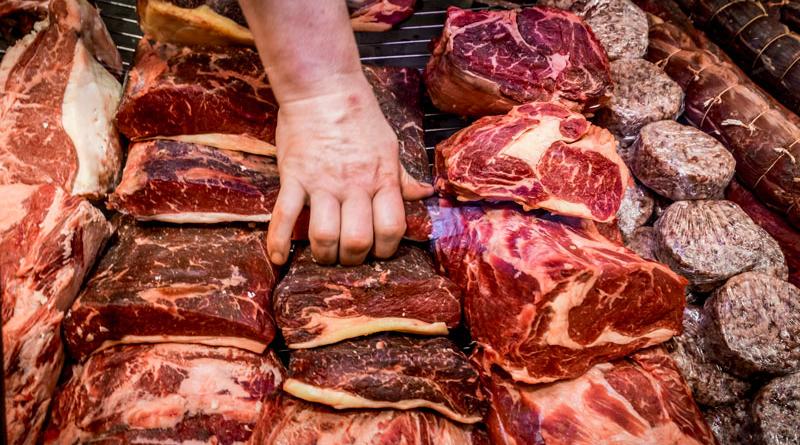China's changing diet is increasing air pollution and leading to more premature deaths.

More people are eating meat in China, leading to farmers using more fertilizers.
Can a larger meat consumption be linked to more premature deaths and air pollution? That seems to be the case in China, according to recent research.
China has seen an expansion of its middle class in the last decade thanks to its significant economic growth, averaging 6% over 30 years. That has led to a change of diets, from one based on plants to one based on meat – with per capita consumption now at 60 kilos per year.
This means that Chinese citizens are consuming more meat than what’s recommended by health experts, opening the door to potential health problems such as a higher risk of heath disease.
Eating the appropriate amount of meat would prevent about 70,000 premature annual deaths caused by air pollution, Amos P. K. Tai, an atmospheric scientist at the Chinese University of Hong Kong, who led the research, said. That’s fewer people than what could be prevented with a plant-based diet but it’s still significant.
Tai and a group of researchers started wondering what the environmental health consequences of the dietary changes could be registered in China. They looked at the link between increased meat consumption and premature mortality attributed to fine particulate matter, which can cause heart and lung disease.
Exposure to such fine particles, called PM2.5, caused an estimated 1.8 million premature deaths in China in 2010. About 10% of those deaths were probably caused by the dietary shift to increased meat consumption in the country from 1980 to 2010, according to the researchers.
As more people eat meat, more feed crops have to be grown by farmers, leading to the use of more nitrogen fertilizers. Farmers usually apply more fertilizer than what the plants actually need, an excess that drives ammonia emissions to the atmosphere – then converting into PM2.5.
“Dietary changes can cause pollution that affects people’s health directly,” Tai said. “It’s not only about climate change.”
Tai worked with nutrition experts to estimate meat consumption. They combined those estimates with emissions data of ammonia, putting the information into an atmospheric model to predict PM2.5 levels. Then, they used those levels to estimated deaths linked to air pollution.
The ammonia emissions linked to the use of fertilizer in China doubled from 1980 to 2010, the research showed. About 63% of the increase was linked to feed-crop production driven by the country’s rising meat consumption. Due to the increased meat demand, by 2010, China emitted an extra 4 trillion grams of ammonia.
19 December 2019
ZME SCIENCE




